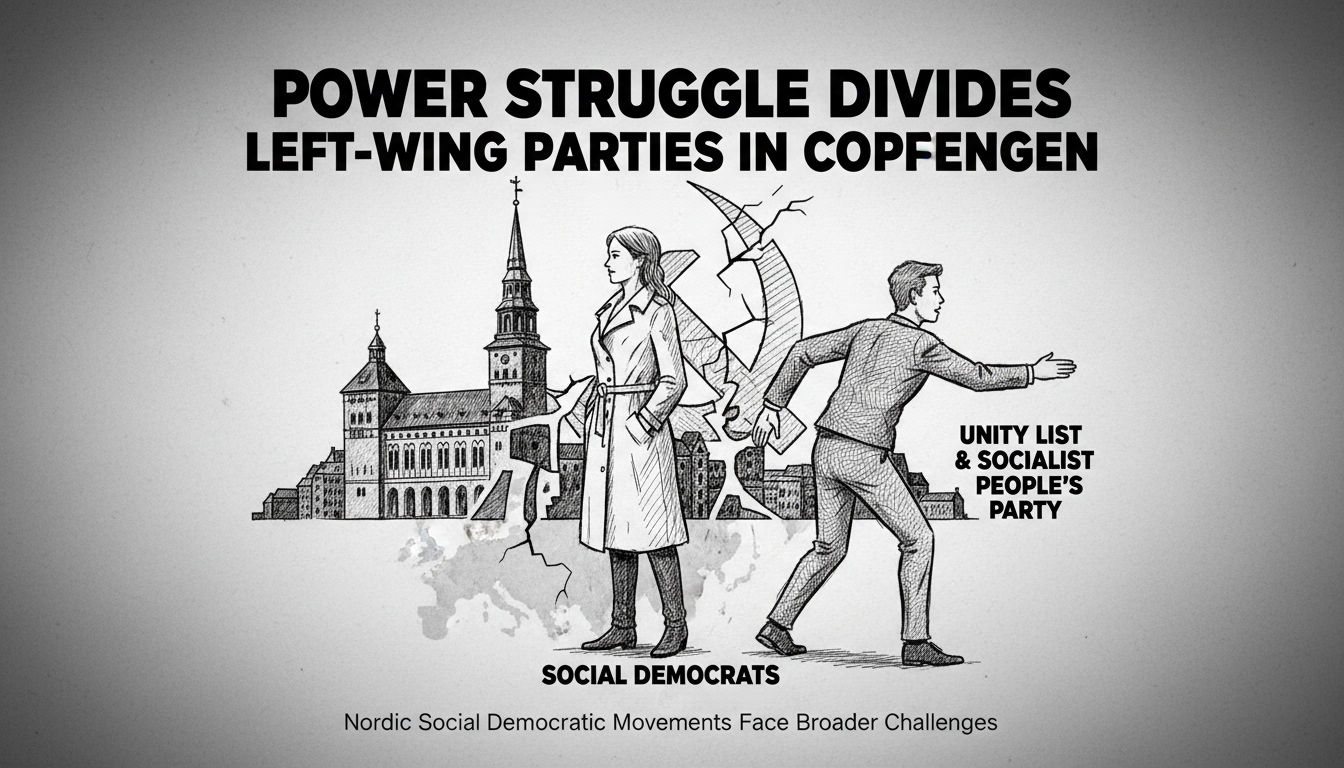A political battle is intensifying in Copenhagen's election campaign. The conflict pits the Unity List and Socialist People's Party against the Social Democrats. This division extends to the national parliament at Christiansborg. The left-wing alliance that once governed together now faces fundamental disagreements.
Copenhagen's political landscape has shifted dramatically in recent years. The traditional red bloc coalition shows deep fractures over key policy issues. Housing policy, climate measures, and social welfare approaches create clear dividing lines. These differences reflect broader tensions within Scandinavian left-wing politics.
Political observers note the Unity List and Socialist People's Party advocate for more radical reforms. They push for stronger climate action and expanded public services. The Social Democrats take more centrist positions, focusing on economic stability and gradual change. This ideological gap makes coalition building increasingly difficult.
What does this mean for Copenhagen voters? The city faces distinct political choices rather than unified left-wing alternatives. Voters must decide between competing visions of progressive politics. Some fear this division could benefit center-right parties in the upcoming election.
The Copenhagen political split mirrors similar tensions in other Nordic capitals. Stockholm and Oslo have witnessed comparable left-wing fragmentation in recent elections. Urban voters increasingly demand specific policy commitments rather than broad ideological alignment.
Local political analysts suggest the traditional red bloc model may need rethinking. The changing demographics of Copenhagen create new political dynamics. Younger voters and new residents often have different priorities than traditional left-wing constituencies. These shifts challenge established political alliances.
How will this affect governance in Denmark's capital? The election outcome could produce a fragmented city council. Negotiations between left-wing parties may become more complex. Some politicians express concern about potential political gridlock on important city issues.
The situation highlights broader questions about Nordic social democracy's future. Traditional working-class parties struggle to maintain coalitions with more radical left-wing partners. This tension between pragmatism and principle defines contemporary Scandinavian politics.
International observers watch Copenhagen's political developments closely. The city often serves as a laboratory for progressive urban policies. Its political choices can influence approaches in other European cities facing similar challenges.

